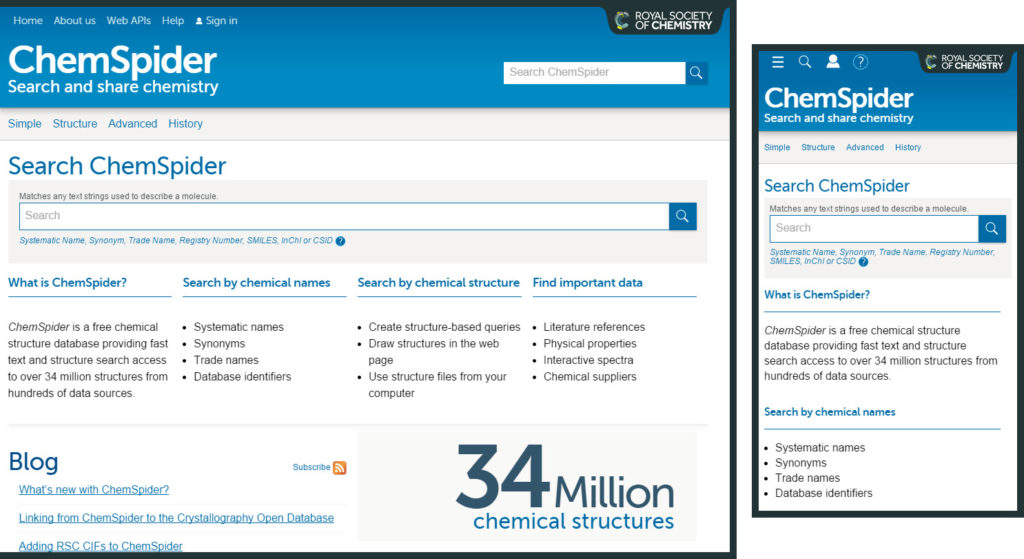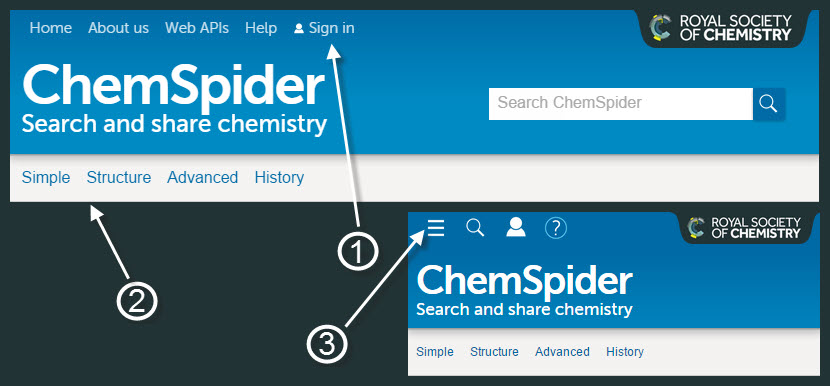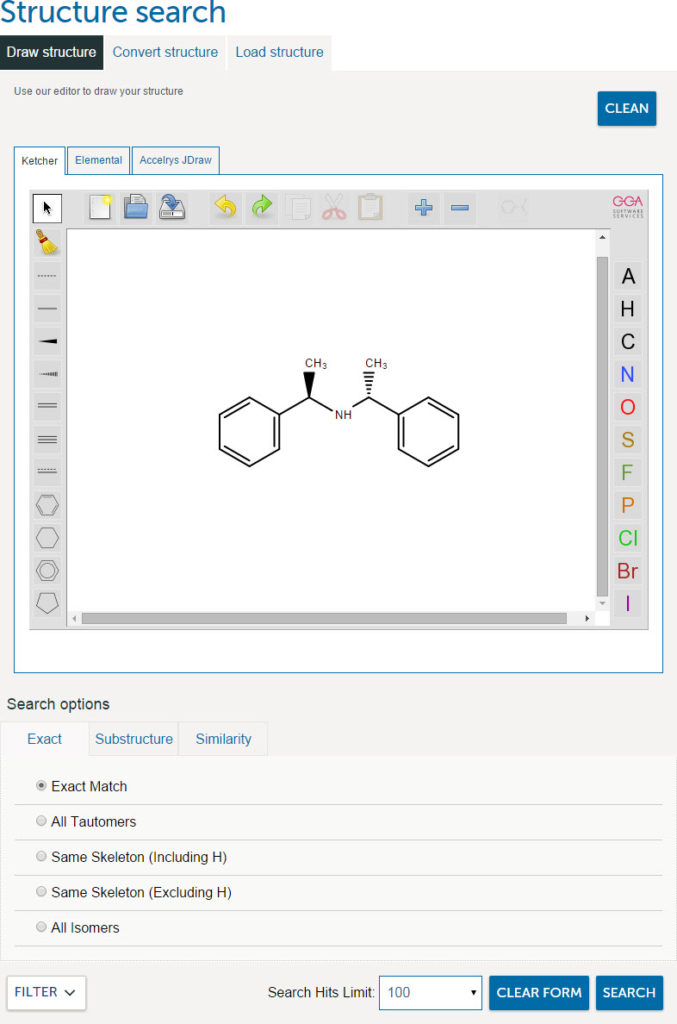Blog post written by David Sharpe.
The ChemSpider team at the Royal Society of Chemistry is proud to announce that our new look ChemSpider website has been launched. As discussed in our last post one of the key features of this new design is to make ChemSpider work on as many devices (from desktops to mobile phones).
As the screenshots above illustrate, the difference in size, shape and the method of interacting with the page means the view of the website that you need is very different between devices. The nature of a responsive website design also means that some of the screenshots that we provide might be a little different from the view that you see when accessing the site, however the variances should be clear. We hope this results in an experience where usability and readability are not sacrificed for functionality.
What has changed? … and what has stayed the same?
To start with the things that have stayed the same: ChemSpider is still based on the same quality-data and provides mechanisms for users to supply and curate data. We also haven’t changed how the search queries work, so searches that you ran previously should still return the same results.
The key changes
1. The new page header
We’ve moved all of the old menu items into a bar at the very top of every page (1), we also display a search bar just above the main page content (2). On smaller displays you will see icons for the Quick search box, Sign In and Help items, all other options can be found under the ‘hamburger’ symbol (3).
2. Shorter record pages
One of the biggest challenges of making ChemSpider work on a mobile is how to display all of the information that we have on a much smaller screen. I think that our solution will actually make ChemSpider better for everyone – regardless of how they view the site.
Previously, a ChemSpider record was one big long page that had basic details about the chemical structure at the top of the page, followed by a number of infoboxes that could be opened or closed and also re-ordered. This worked fine in most cases but led to situations where you had to do lots of scrolling up and down, and might not be able to spot the infobox that you were looking for. Now, we still show some information about the chemical structure at the top of the page (1) but, below that there is a single pane (2) which contains tabs (3) that allow you to select the section of the record that you wish to display. This means that it is always easy to look at some information and see the structure to which it relates.
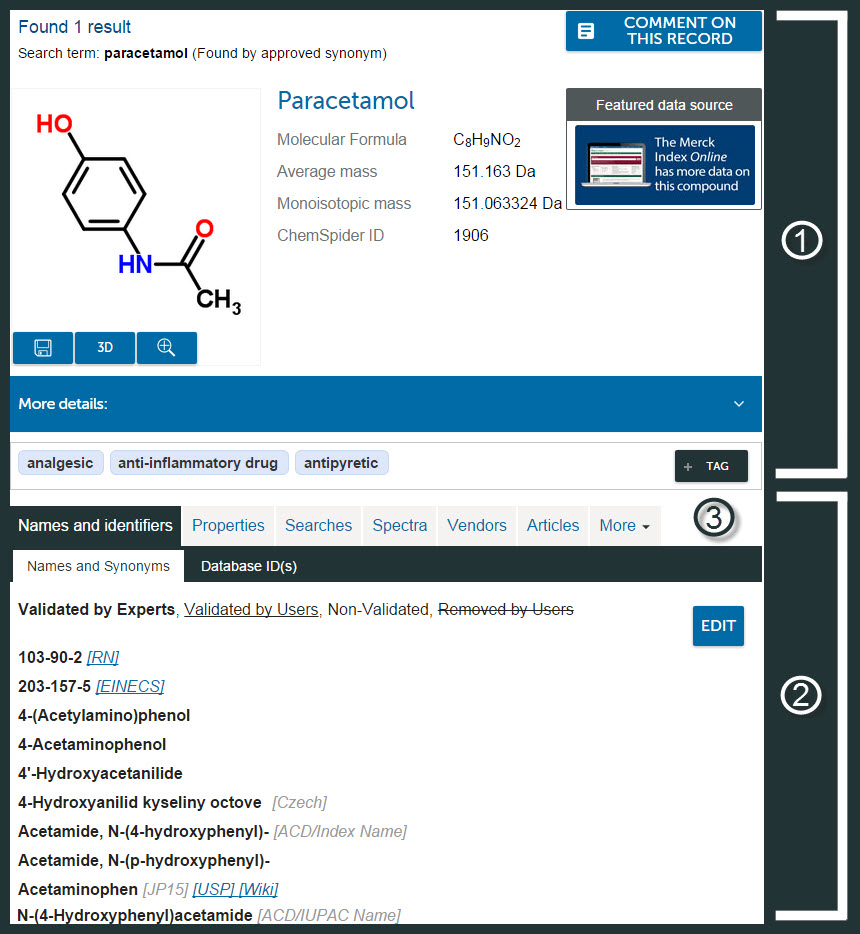
The new page layout consists of a Compound header (1) and a Pane (2) diplaying the contents of the infotabs (3)
3. No Java, No worries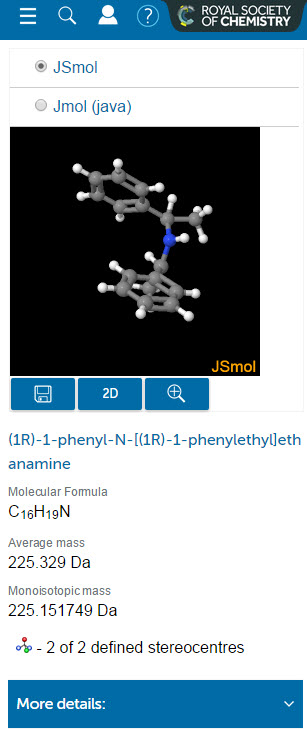
Many browsers no longer support Java applets. Good Java-free versions of chemistry tools have really started to take off in the last 18 months and the time was right to start the switch over. This means that the site now incorporates JSmol – enabling 3D structure view, CIF viewer and NMR/IR/MS spectra display as well as Ketcher and Elemental for structure input/editing.
4. Structure searches simplified
Previously, creating a structure search was a bit of a pain as you had to: open the structure editor in a pop-up, draw your structure, and then save it back into the searches pages – now our structure editors are embedded into the interface, cutting down the number of steps needed to get to your results and making it easier to tweak searches.
One particularly useful feature for anyone accessing the site on a tablet or mobile phone is the Convert Structure tab which can be used to load in a complex structure as a basis for a search, for instance using “dibenzylamine” in the structure conversion gives a structure that can be quickly elaborated to the Simpkins’ chiral base precursor amine shown in the the screenshot.
What’s next?
Hold on a moment there! We’ve only just got all of these great features into the site! I’m joking, but we will be spending time tweaking and perfecting the new design. We will then be able to focus on further development, if I were to speculate – I’d suggest that we will look at more (non-Java) tools that can be incorporated into the site to give a better experience, and new methods of improving the quality of data in our records.
In the meantime, please explore the site and do email us at chemspider-at-rsc.org to let us know what you think of the new site.


